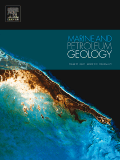
MARINE AND PETROLEUM GEOLOGY
Scope & Guideline
Innovating Insights for a Sustainable Future
Introduction
Aims and Scopes
- Marine and Petroleum Systems Analysis:
The journal emphasizes the integration of geological, geophysical, and geochemical data to analyze marine and petroleum systems, enhancing the understanding of hydrocarbon generation and migration. - Sedimentology and Stratigraphy:
Research frequently explores sedimentary processes, depositional environments, and stratigraphic frameworks, providing insights into reservoir characteristics and their evolution. - Diagenesis and Reservoir Quality:
A core area of focus is the impact of diagenetic processes on reservoir quality, including alterations in porosity and permeability due to geological and chemical changes. - Geochemical Characterization:
The journal publishes studies that involve detailed geochemical analyses of source rocks, oils, and gases to understand their origins, maturation, and potential for hydrocarbon generation. - Hydrocarbon Exploration and Production:
Insights into exploration techniques, reservoir modeling, and production strategies, particularly in unconventional resources and deepwater settings, are key contributions of the journal. - Paleoenvironments and Tectonics:
Research often includes paleoenvironmental reconstructions and the impact of tectonic activities on sedimentation patterns and hydrocarbon systems.
Trending and Emerging
- Machine Learning Applications:
An increasing number of studies are utilizing machine learning techniques for data analysis, reservoir characterization, and prediction of geological features, indicating a significant trend towards computational methods in geology. - Unconventional Resource Exploration:
There is a marked rise in research focusing on unconventional resources, including shale gas and tight oil, reflecting the industry's shift towards maximizing extraction from alternative sources. - Carbon Capture and Storage (CCS):
Emerging themes include the study of geological formations for carbon capture and storage, driven by the need to address climate change and reduce greenhouse gas emissions. - Hydrothermal and Geochemical Processes:
Research on hydrothermal systems and their influence on mineralization and hydrocarbon generation is gaining prominence, highlighting the interplay between geological processes and resource formation. - Environmental Impacts of Hydrocarbon Production:
A growing concern for the environmental implications of hydrocarbon exploration and extraction is reflected in studies that assess the impacts of sedimentary and geochemical processes on ecosystems.
Declining or Waning
- Traditional Reservoir Characterization Methods:
There is a noticeable decline in studies solely relying on conventional methods for reservoir characterization, as newer, data-driven approaches and machine learning techniques gain traction. - Shallow Marine Systems:
Research on shallow marine environments and their hydrocarbon potential seems to be waning, potentially overshadowed by the growing interest in deepwater and unconventional reservoirs. - Geophysical Methodologies:
The focus on traditional geophysical methods for subsurface imaging and characterization has decreased, with a shift towards integrated approaches that combine multiple data types, including machine learning. - Coal and Oil Shale Studies:
The exploration of coal and oil shale as primary hydrocarbon sources appears to be less prominent, as attention shifts toward more effective unconventional resources and advanced extraction technologies. - Biostratigraphic Studies:
There is a reduction in the number of papers dedicated exclusively to biostratigraphy, as interdisciplinary approaches that incorporate geochemistry and sedimentology become more prevalent.
Similar Journals
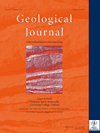
GEOLOGICAL JOURNAL
Elevating the conversation in Earth and Planetary Sciences.GEOLOGICAL JOURNAL, an esteemed publication by WILEY, has been at the forefront of geological research since its inception in 1951. With an ISSN of 0072-1050 and E-ISSN of 1099-1034, this journal serves as a vital platform for disseminating high-quality, peer-reviewed research in the field of geology. Operating out of the United Kingdom, the journal proudly features a Scopus rank of 80 out of 321 in the Earth and Planetary Sciences category, reflecting its commitment to scholarly excellence, with a 2023 category quartile ranking of Q2. As part of its innovative approach, GEOLOGICAL JOURNAL seeks to foster interdisciplinary collaborations, advancing our understanding of earth processes, materials, and history. Although it does not offer open access options, its robust subscription model ensures that both professionals and students have access to groundbreaking insights. With a publication history that spans over seven decades, the GEOLOGICAL JOURNAL continues to be an indispensable resource for the global geological community, encouraging discoveries that shape our comprehension of the planet.
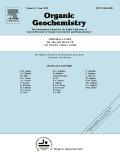
ORGANIC GEOCHEMISTRY
Innovating Understanding in Organic GeochemistryORGANIC GEOCHEMISTRY, published by PERGAMON-ELSEVIER SCIENCE LTD, is a pivotal journal in the field of geochemistry and petrology, dedicated to the exploration of organic compounds and their interactions within geological systems. Established in 1977, this journal has been an influential medium for researchers, providing significant insights and advancements that have shaped the understanding of organic geochemistry. With an impressive impact factor and a distinguished ranking of Q2 in its category, it sits at the forefront of academic research, currently holding the 46th position out of 154 in Earth and Planetary Sciences according to Scopus, which places it within the top 70th percentile. Although it operates on a subscription basis, ORGANIC GEOCHEMISTRY is recognized for its rigorous peer-review process, ensuring that only the highest quality research is published. Its scope includes an array of critical topics, appealing to geochemists, petrologists, students, and professionals looking to deepen their knowledge and contribute to this dynamic field. With converged publications extending into 2024, the journal continues to play a crucial role in the dissemination of cutting-edge research that addresses global challenges such as environmental change and resource management.
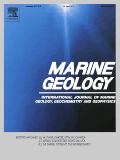
MARINE GEOLOGY
Navigating the Intersection of Geology and Oceanography.MARINE GEOLOGY, published by Elsevier, is a premier journal dedicated to advancing the understanding of marine geological processes and their interactions with the Earth's systems. With an ISSN of 0025-3227 and an E-ISSN of 1872-6151, this esteemed journal has been a vital resource for researchers and professionals since its inception in 1964. The journal is recognized for its high impact, with commendable rankings, including Q1 in both Geology and Oceanography, and Q2 in Geochemistry and Petrology according to its 2023 category quartiles. With a Scopus rank within the top percentiles in various fields, MARINE GEOLOGY offers a platform for original research, critical reviews, and significant advancements in the field, covering topics ranging from sedimentology to geochemical processes in marine environments. Although it does not operate under an open-access model, its rigorous peer-review process ensures high-quality publications that contribute to our understanding of oceanic and geological sciences. Researchers, students, and professionals alike will find MARINE GEOLOGY to be an essential resource for collaboration and discovery within the vast field of marine science.
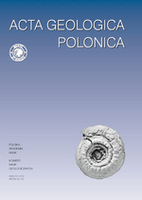
ACTA GEOLOGICA POLONICA
Innovative research shaping the landscape of geology.ACTA GEOLOGICA POLONICA is a distinguished journal published by the Polska Akademia Nauk, in collaboration with the University of Warsaw's Geology Department. Since its inception, it has served as a vital platform for disseminating innovative research in the field of Geology, reflecting a commitment to advancing scientific knowledge in Earth and planetary sciences. With an ISSN of 0001-5709 and an E-ISSN of 2300-1887, this journal provides a rigorous review process and is classified in the Q3 quartile for Geology as of 2023, indicating its growing influence in the discipline. Despite not being open access, the journal facilitates meaningful contributions that span a range of geological topics from fundamental research to applied sciences, thereby enriching the academic landscape. Researchers, professionals, and students alike are encouraged to engage with the valuable findings and discussions contained within its pages, which continue to shape the future of geological inquiry.

MARINE GEOPHYSICAL RESEARCH
Illuminating the interplay of earth and ocean.MARINE GEOPHYSICAL RESEARCH is a prominent journal published by Springer, dedicated to advancing the field of marine geophysics, with significant contributions to geochemistry, petrology, and oceanography. Established in 1970 and currently running its volumes until 2024, this journal operates as a key resource for researchers and professionals focused on understanding the complexities of marine environments and geological processes. With a strong foothold in academic rankings—positioned in Q2 for both Geophysics and Oceanography, and Q3 for Geochemistry and Petrology in the 2023 category quartiles—MARINE GEOPHYSICAL RESEARCH provides a rigorous platform for high-quality research dissemination. Although not an open-access journal, it offers invaluable insights into marine geophysical phenomena, thus appealing to a diverse audience of scholars and practitioners. The journal’s relevance and impact are further underscored by its Scopus ranks, situating it competitively within the Earth and Planetary Sciences domain. Researchers and students seeking to stay abreast of cutting-edge developments and methodologies in marine geophysics will find it an essential addition to their academic resources.
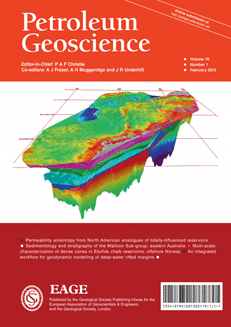
PETROLEUM GEOSCIENCE
Uncovering Insights in Petroleum ProductionPETROLEUM GEOSCIENCE is a prestigious journal published by the GEOLOGICAL SOCIETY PUBLISHING HOUSE, catering to the dynamic field of geosciences with a particular focus on petroleum exploration and production. With its ISSN 1354-0793 and E-ISSN 2041-496X, this essential academic resource has been at the forefront of research since its inception in 1995, and is set to continue leading through 2024. The journal has distinguished itself with impressive rankings, achieving Q1 statuses in categories such as Earth and Planetary Sciences (miscellaneous) and Geology, and Q2 placements in Economic Geology, Fuel Technology, and Geochemistry and Petrology for the year 2023. With high recognitions in Scopus rankings, including a 79th percentile in Earth and Planetary Sciences (Geology), it is an invaluable platform for researchers and professionals seeking to share their findings and stay updated on industry advancements. Although not an open-access journal, its rigorous peer-review process ensures that published articles contribute significantly to the ongoing discourse in petroleum geosciences, fostering knowledge exchange and innovation in the field. Researchers from across the globe consider this journal a vital venue for their work, enhancing its reputation and importance in the academic landscape.

ANNALES SOCIETATIS GEOLOGORUM POLONIAE
Unveiling Geological Insights from Poland and the World.ANNALES SOCIETATIS GEOLOGORUM POLONIAE is a distinguished journal published by the Polish Geological Society, focusing on pivotal research in the fields of geology, economic geology, and stratigraphy. With an ISSN of 0208-9068, this journal has established itself as an essential platform for disseminating significant findings and advancements in geological sciences since its convergence in 2008. The journal proudly holds a Q2 quartile ranking in the categories of Economic Geology, Geology, and Stratigraphy as of 2023, indicating its respectable position within the global academic community. Researchers will find its indexed status in Scopus, ranking #138/321 in Geology and showcasing a solid presence in key geological sub-disciplines. While the journal is not open access, it remains a vital resource for professionals and students striving for insight into contemporary geological research. Located in Krakow, Poland, the journal continues to contribute significantly to the understanding of geological processes and resources, making it an indispensable reference for anyone in the field.

Swiss Journal of Geosciences
Exploring the Depths of Geoscientific KnowledgeSwiss Journal of Geosciences is a prestigious academic journal dedicated to advancing the field of geosciences, published by SPRINGER INTERNATIONAL PUBLISHING AG. Since its inception in 2007, the journal has established itself as a leading platform for disseminating high-quality research findings in various domains related to Earth and planetary sciences, achieving a notable Q1 ranking in Geology as of 2023. With a solid reputation reflected in its Scopus ranking of Rank #72/321, the journal stands in the 77th percentile within its category. Based in Switzerland, the Swiss Journal of Geosciences embraces an open access model, making it easier for researchers, professionals, and students worldwide to access vital geological research without barriers. The journal’s objectives include promoting interdisciplinary research and fostering insights that address both fundamental and applied geoscientific problems, ensuring it remains a crucial resource for those seeking to understand our planet’s dynamics. Engage with pioneering research and contribute to the vibrant community of geoscientists by exploring the impactful articles published within its pages.
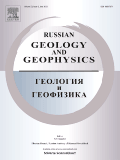
Russian Geology and Geophysics
Exploring the Depths of Geology and GeophysicsRussian Geology and Geophysics is a seminal journal published by GEOSCIENCEWORLD that plays a pivotal role in the dissemination of vital research within the realms of Earth-Surface Processes, Geology, and Geophysics. With an ISSN of 1068-7971 and an E-ISSN of 1878-030X, this journal has witnessed a continuous evolution since its convergence in 2007 and is poised to thrive through 2024. While it is not an Open Access journal, it is recognized for its significant contributions to the academic community, holding a respectable Q2 ranking in Earth-Surface Processes and Q3 rankings in both Geology and Geophysics as of 2023. The journal’s impact factors align it within competitive quartiles, marking it as an essential resource for researchers and professionals seeking to stay at the forefront of geological and geophysical sciences. By publishing high-quality peer-reviewed articles, the journal fosters an environment of knowledge sharing and innovation, making it indispensable for students, practitioners, and scholars alike who are dedicated to advancing our understanding of Earth's complex systems.
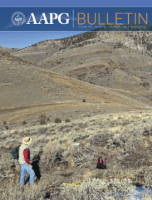
AAPG BULLETIN
Empowering discoveries in geology and energy.AAPG BULLETIN, published by the American Association of Petroleum Geologists, stands as a premier journal in the fields of Earth Sciences and Energy Engineering. With an impressive history spanning from 1968 to 2023, the journal has established itself as a valuable resource for researchers and professionals alike, focusing on a wide array of topics including geology, geochemistry, petrology, and fuel technology. Its robust standing in the academic community is reflected in its recognition as a Q1 journal across multiple categories such as Earth and Planetary Sciences, Energy Engineering, and Geology, with notable rankings in prestigious databases like Scopus. Although not an open-access journal, the AAPG BULLETIN provides vital insights and studies that advance our understanding of Earth processes and energy resources. It serves as an essential platform for disseminating cutting-edge research, fostering collaboration, and inspiring the next generation of scientists and engineers in the pursuit of sustainable energy solutions.